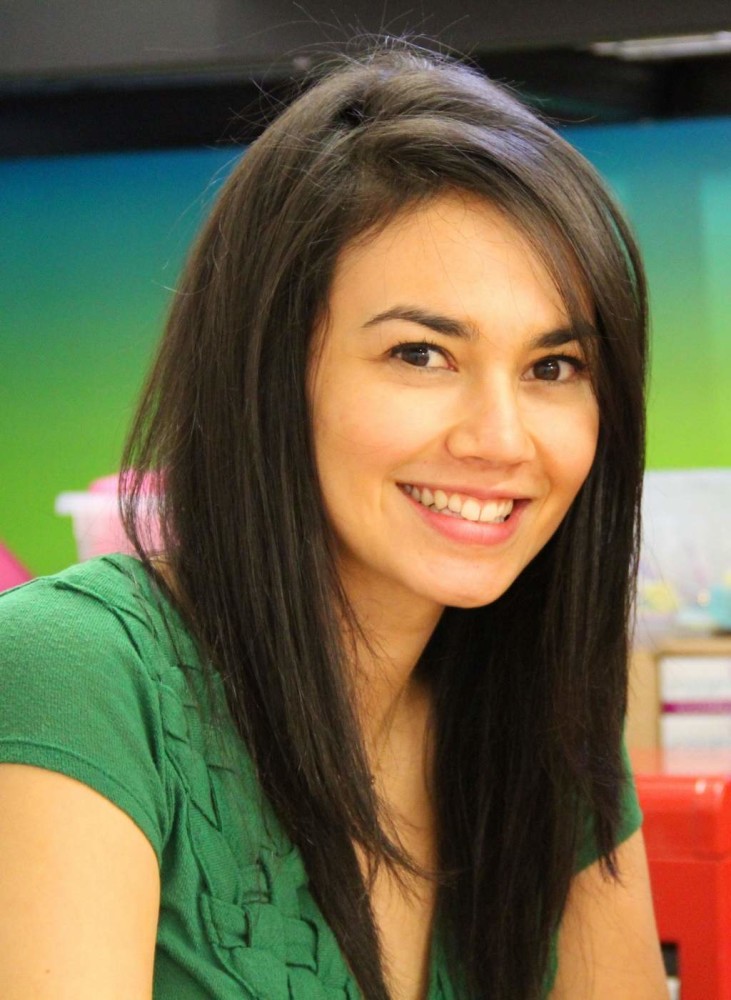By Alison Gowans
The Gazette, Cedar Rapids, Iowa
WWR Article Summary (tl;dr) This article has a great Q and A with Alice Brooks, co-founder of toy company Roominate which creates products designed to empower girls in STEM — science, technology, engineering and math. Brooks’ story is sure to encourage female business ownership and more importantly, confidence in women to pursue careers in male dominated fields like mechanical engineering.
The Gazette, Cedar Rapids, Iowa
Alice Brooks is co-founder of toy company Roominate, which creates mechanical toys for girls, complete with circuits, motors, modular furniture building pieces and walls.
She grew up playing in her dad’s robotics lab and made her first toy when she was eight years old — when she asked her dad for a Barbie, he gave her a saw instead. So she made her own doll out of wood and nails.
Brooks graduated from the Massachusetts Institute of Technology in 2010 with a B.S. in mechanical engineering and received her master’s in mechanical engineering from Stanford in June 2012.
She will be the keynote speaker for the conference’s Young Leaders Track.
Question: Can you tell me a little bit about what you’re going to talk about at the conference?
A: I’m going to be talking about my journey of building a company, Roominate. We are a toy company designed to empower girls in STEM — science, technology, engineering and math.
We started four years ago … and secured funding on (the TV show) “Shark Tank” with Mark Cuban. Right at the end of 2015 we actually sold our company to PlayMonster in Wisconsin. I still travel a lot to the headquarters to do product design.
I’ll be talking about the whole journey and some interesting ups and downs along the way.
Question: What kinds of ups and downs?
A: We were such a small company, always under 10 people. One day we’d be doing something really exciting, like going on “Shark Tank” and on another day dealing with a shortage from a manufacturer.
Question: How did you come up with the idea for Roominate?
A: (Roominate co-founder Bettina Chen) and I met at Stanford. We were two of very few women in our graduate program. It got us talking about why we picked engineering and what got us started. And we realized for both of us it was toys. Our goal was to make that hands-on engineering experience more accessible and to make that appeal to a wider audience of girls.
Question: Focus groups indicated that girls didn’t like some of the first versions of the Roominate toys. Is there a lesson in there for girls as they play with the set and build and experiment on their own?
A: It was all good, it was all learning. We had some prototypes that the girls we tested with didn’t enjoy … You don’t know until you try them. That was great feedback to get.
That’s how we got to a very compelling experience … It totally parallels with the actual process of playing with Roominate … You can make a house or a school or whatever you want, but as you’re building you might come up with a better thing you want to build.
It’s that engineering problem-solving experience.
Question: Your story includes your father handing you a saw instead of a doll. How do you think the toys we give them influence children?
A: Getting those things at a young age, I just loved making things. Getting to practice built up my confidence before I even knew what engineering was …
As a woman, it can be the smallest little remarks that make you feel like you don’t belong. At Stanford, male classmates would say, ‘You’re not in mechanical engineering,’ and then they would list other majors they thought I would be in … having that confidence to draw on was huge.
When we looked up the toys that were out — there we saw a lot of the hands-on — engaging, problem-solving toys were really reserved for the boys.
Question: What message do you have for the high school students who will be attending the session?
A: I was not cool in high school at all. I was really focused on school and math and science, and I was on the science team. Those things weren’t cool, but I’m really glad I did them. Those things really opened up a lot later on. What you’re interested in — go for it. Don’t worry about what people say.
The other message is if you’re going to start something … you don’t have to come up with that brilliant idea from the start. You can get information from people, go out and test it. You don’t have to have this brilliant light-bulb moment. You can still go out there and do it.














































































































































































































































































































































































